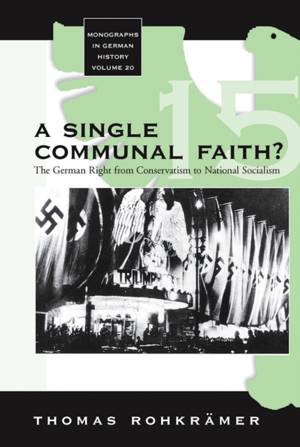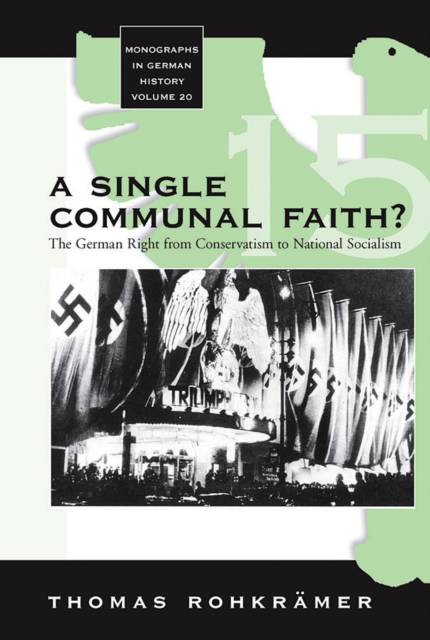
- Afhalen na 1 uur in een winkel met voorraad
- Gratis thuislevering in België
- Ruim aanbod met 7 miljoen producten
- Afhalen na 1 uur in een winkel met voorraad
- Gratis thuislevering in België
- Ruim aanbod met 7 miljoen producten
Omschrijving
How could the Right transform itself from a politics of the nobility to a fatally attractive option for people from all parts of society? How could the Nazis gain a good third of the votes in free elections and remain popular far into their rule? A number of studies from the 1960s have dealt with the issue, in particular the works by George Mosse and Fritz Stern. Their central arguments are still challenging, but a large number of more specific studies allow today for a much more complex argument, which also takes account of changes in our understanding of German history in general. This book shows that between 1800 and 1945 the fundamentalist desire for a single communal faith played a crucial role in the radicalization of Germany's political Right. A nationalist faith could gain wider appeal, because people were searching for a sense of identity and belonging, a mental map for the modern world and metaphysical security.
Specificaties
Betrokkenen
- Auteur(s):
- Uitgeverij:
Inhoud
- Aantal bladzijden:
- 306
- Taal:
- Engels
- Reeks:
- Reeksnummer:
- nr. 20
Eigenschappen
- Productcode (EAN):
- 9781845453688
- Verschijningsdatum:
- 1/10/2007
- Uitvoering:
- Hardcover
- Formaat:
- Genaaid
- Afmetingen:
- 152 mm x 229 mm
- Gewicht:
- 580 g

Alleen bij Standaard Boekhandel
Beoordelingen
We publiceren alleen reviews die voldoen aan de voorwaarden voor reviews. Bekijk onze voorwaarden voor reviews.












